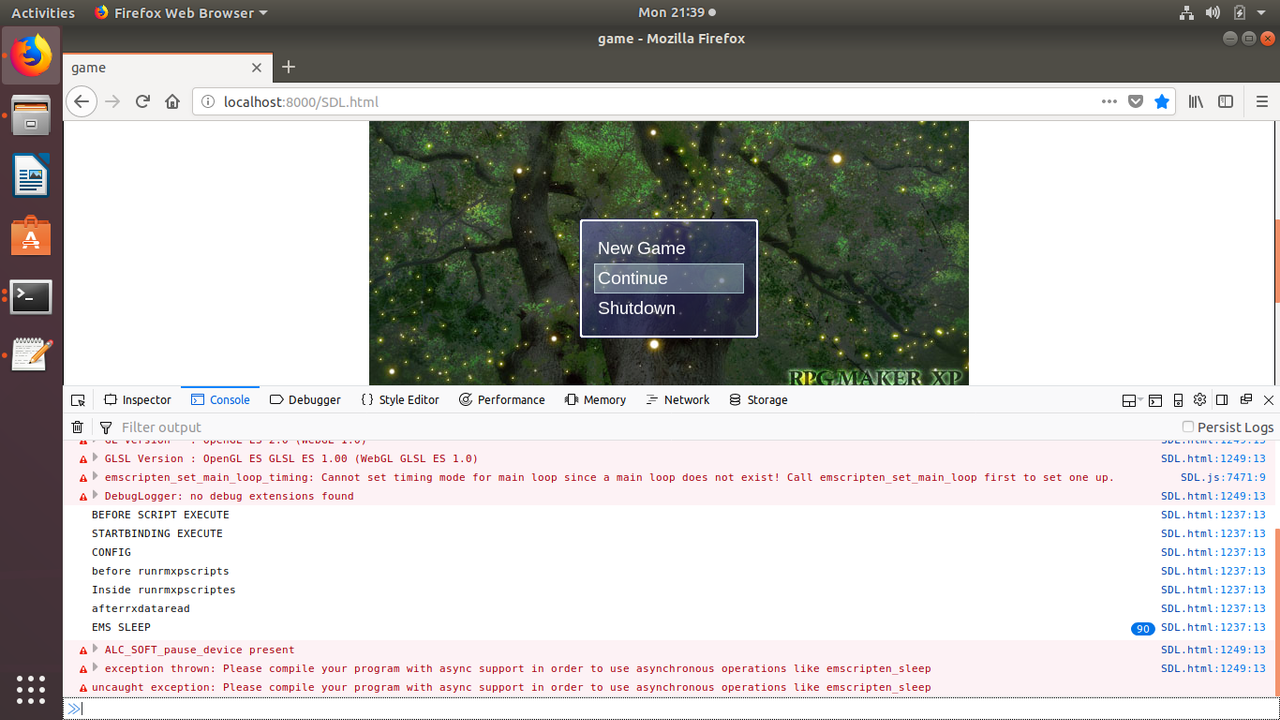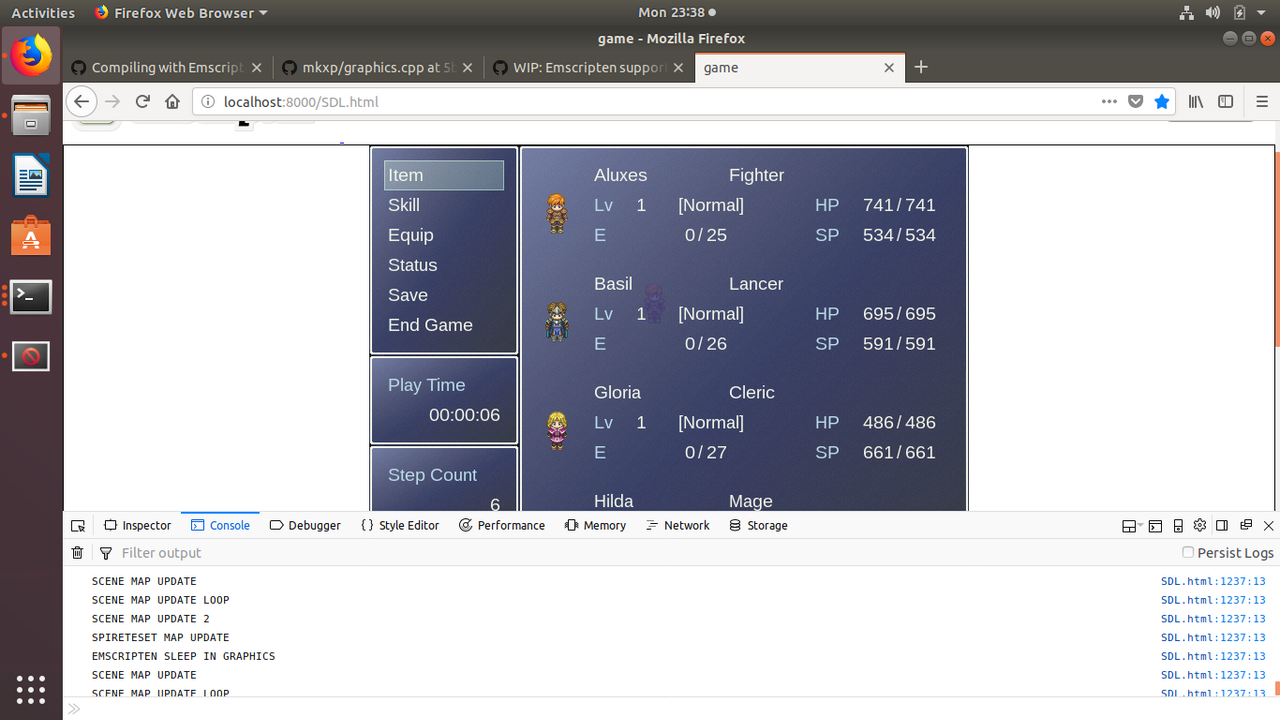I tried around one year ago to port mkxp to emscripten but I was not really successful. In the end I was able to see the title screen of Desert Nightmare (game I used for testing) but then the browser froze because it ran too slow. Therefore OpenGLES -> WebGL mapping just works.
tl;dr: If you want to work on it I can share my current progress with you.
Ruby 1.8 can be simply crosscompiled via emscripten. The main problem is that Ruby 1.8 has lots of undefined behaviour, it calls function pointers with the wrong amount of arguments. This works in the x86 calling convention but emscripten asserts. I manually patched all the incorrect function calls (that took a while) until mkxp finally started in the browser without asserts. Though still half of the time the ruby library miscompiled and failed with strange error messages, probably caused by more undefined behaviour. I plan to redo the ruby port with help of UBSan (undefined behaviour sanitizer).
Another problem is that the script must yield (return to the browser), but the sleep in mkxp is done in the Graphics function that is deep in the Ruby callstack. I created a list of functions that are on the stack when this happens and added them to the EMTERPRETER list, unfortunately this way basicly half of the ruby code runs through the slow emterpreter :/.
To get rid of the browser hangs you could use Webworkers but in all my previous SDL tests I was never able to get the input working and webworkers have a limited API, OpenGLES2 isn't supported by the emscripten-worker-proxy, therefore mkxp probably won't work in them at all :/.
In Mkxp itself I patched nothing, except for the boost dependency because boost is bloat and is only used for config-file parsing which is not too useful in the web.


Haven't fully looked into this yet, but it might be possible to compile mkxp with Emscripten to run in modern browsers. So far, I can find that SDL might work, mapping OpenGLES calls to WebGL, and someone has successfully compiled MRI 1.8 here. That mostly leaves looking into non-existent shared state support for JS threading and platform specific code. Any ideas on this?